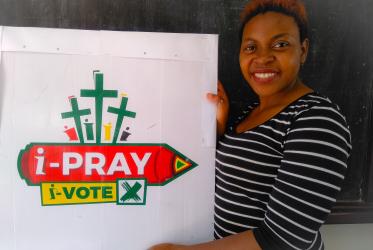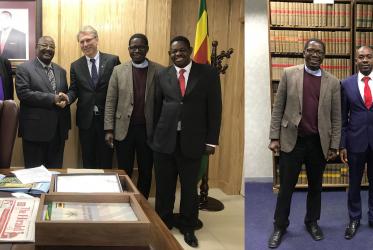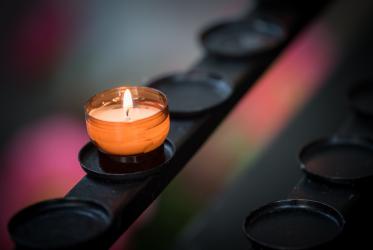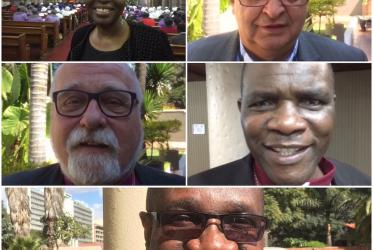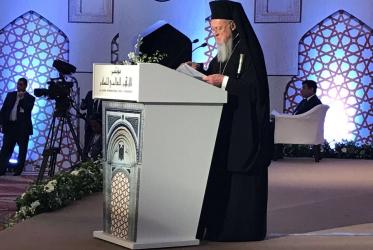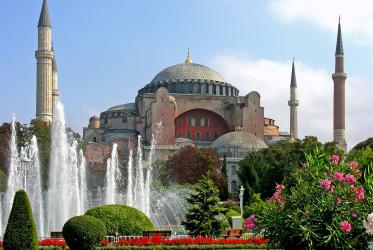Displaying 1 - 20 of 25
Young Africans are eager to grapple with challenges
09 January 2020
Rev. Kenneth Mtata reflects on journey of transition in Zimbabwe
20 September 2018
Patriarch Kirill meets with Ecumenical Patriarch
07 September 2018
Praying and voting goes together
11 July 2018
#WCC70: Churches as “freedom agents”
12 February 2018
WCC Executive Committee comments on situation in Zimbabwe
22 November 2017
Voices from a solidarity visit to Zimbabwe
25 May 2017
WCC general secretary mourns lost lives, calls for end to violence
11 December 2016
Facilitating peace with passion
26 July 2016






